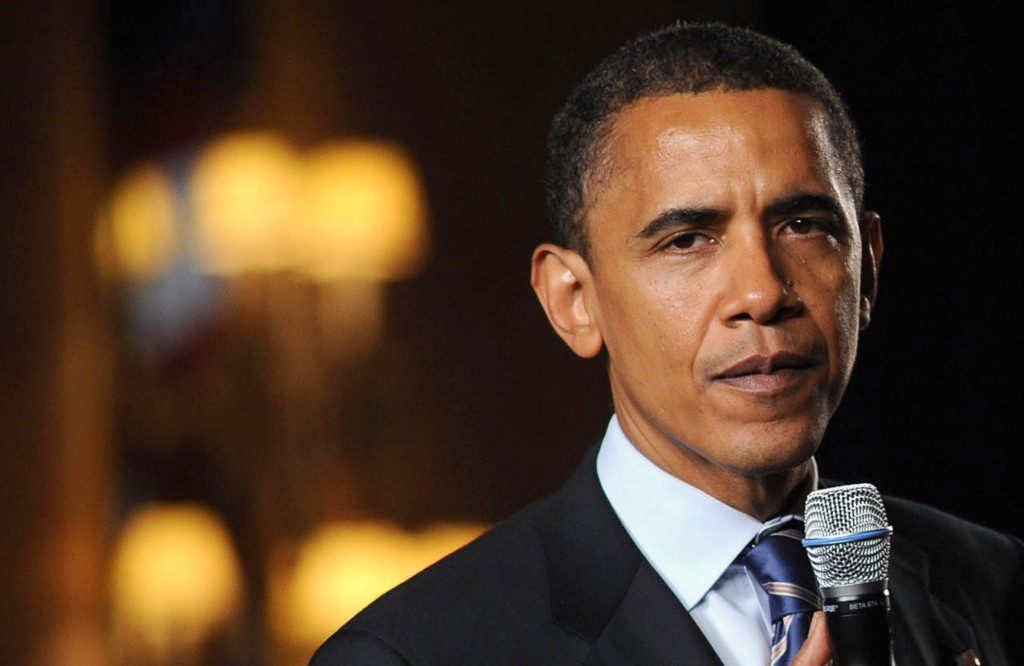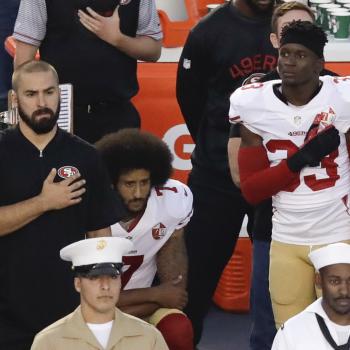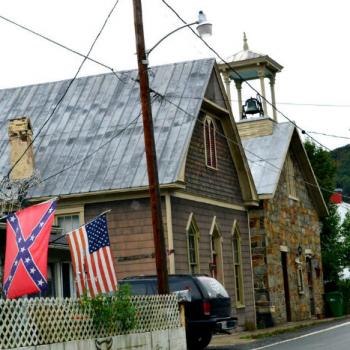By the Rev. Dr. Katharine Henderson and the Rev. Dr. James Forbes.
The Rev. Dr. Katharine Henderson, president of Auburn Theological Seminary, and the venerable Rev. Dr. James Forbes, the first African American pastor of the famed Riverside Church, sat down to have a one-on-one reflection of race and the Obama presidency during Black History Month.
KH: Coming to the end of the Obama presidency, it seems important that we gain some clarity on the impact of race over his two terms.
JF: Even people who were not excited about his election had to acknowledge that this is a kind of snapshot of what America could be. There was talk about ‘maybe we have come of age as a democracy,’ and there were even people who announced we have come into a post-racial society. Although it proved to be premature, it was nevertheless a positive moment.
My reaction to his presidency cannot be understood apart from my lens of the experience of being the first African American pastor of a major Protestant denominational church, the Riverside Church in New York City. I experienced the joy of the occasion of my installation, celebrated with over 500 clergy from across the United States. But shortly thereafter, the stubbornness of racialist attitudes could not be discounted or dismissed. Fairly soon you discover that being the first African American, you’re going to experience the detour of power and authority — the power’s gonna go around you.
Symbolic representation, yes. Substantive inclusion, problematic. The illusion of freedom to be who you are and to have your work received for what it is cannot be divorced from the lens of race valuation.
KH: And race valuation can be seen in all of the issues that have come so fully into view around police brutality and through the backdrop of the Black Lives Matter movement. All of these connect to the issue of race in the White House.
JF: Yes, so I would like to have the issue raised, how much does race matter? And when I ask that question, I think Obama’s presidency made it possible for us to discover in living color how deep white supremacy ideology is in shaping the attitudes, the thoughts, the patterns, the practices, the perceptions, in our culture. How deep that stuff is.
KH: I’m looking, for example, at the prevalence of anger of our current candidates, and not just on the Republican side. It seems like anger is almost a badge of honor, but also a privilege that only white people are allowed to express. I’m thinking about Obama’s restraint, that he so rarely has been able to express true righteous anger. People have said “he’s so restrained” but if he expressed his anger in the way we’re currently seeing anger, he would become simply “The Angry Black Man.” There’s a box within which one can move.
JF: The problem is not the pervasiveness of white anger and angst; it is the denial of the relationship between the changing demographics and the changing reality about power relations between the races and the exposure of the bigotries—the normalization of bigotry. Even liberals are experiencing that the diminishment of white hegemony is discomforting and inconveniencing. The requirement to be in denial about it robs us of the opportunity to do honest and accurate assessment. It sets us up for identifying scapegoats against which to fling the arrows of anger and resentment.
KH: How would you say that the African American communities across America assess and judge Obama’s presidency differently… or do they?
JF: In Olympic swimming competitions, the score is based on the degree of difficulty of the dive. I think most black people are aware that the conditions surrounding Obama’s leadership make it almost unfair to try to assess him before you outline with precision what he was up against in trying to do that job. Most of us think it was not a question of whether there was a level playing field; the question is, was he granted the full power and authority necessary for excelling on the field the presidency itself should be played on?
KH: How do you think the Obama presidency would have been different if it had not been constrained by white supremacy?
JF: All presidents justifiably are critiqued for falling short of the ideals campaigned on or articulated. They all do. But in Obama’s situation, if the critique has already been jaundiced by racialist attitudes, is this person being assessed in the light of the power that he has or in the light of a predisposition to discount strengths or factor in restraining circumstances?
Most black people think that we offered a sterling example of what the black culture produced, with Michelle and that grandmother, those two daughters. We gave America our best.
KH: Yes, our “firstborn,” the “first fruits.”
JF: Yes, and America trampled all over it. I almost used biblical language — God gave the world his only begotten son and we crucified him. And some tried to do the same thing to them [the Obamas].
KH: And there has been serious critique from the black community, as well. Liberals have criticized aspects that felt prematurely compromising of the progressive stance that we would have wished for.
JF: I think Americans think that Obama did pretty good — did very good — given the circumstances he was up against. Of course, he was far from perfect. The real issue is that the depth of the racism was such that even when he did things that were so obviously contributions to the spirit of America—like his representation in international circles, his extraordinary sensitivity in moments of crisis, and his attempts to be balanced and restrained in extreme provocation—it felt like the assault against him bordered not only on a denigration of this man, but a desecration of the office itself.
KH: If you were Obama’s pastor, what would you say in light of the burden that he’s had to bear as president, around race and other things? What does he need to restore his soul?
JF: From the beginning of Obama’s administration, there have been multiple attempts on his life. If I had only one sermon to preach for the rest of my life, it would be this one:
Mr. President, remember the word of Joseph to his brothers, “You sold me but God sent me.” Joseph discovered that his life was in the hands of a God who had a larger purpose for his life than even he had been aware. When you think about the grace that protected your life against the most threatening vulnerabilities, be reminded of God’s revelation to Joseph—I saved your life so that you might save lives and especially (those) of your people. As a person of bi-racial ancestry, you know that “your people” includes all of us. What a responsibility! We are thankful for what God did for this nation through your courageous and faithful service.
Obama image via Everett Collection/Shutterstock.















